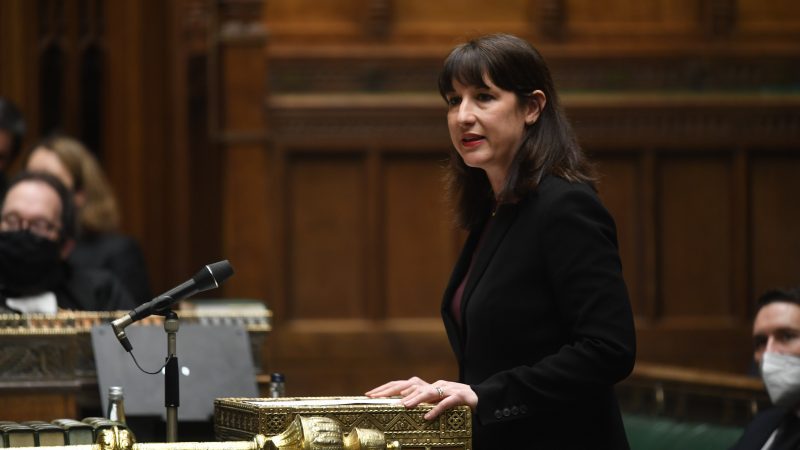
Labour has urged the government to close a “major tax loophole” in the windfall tax ahead of a meeting between ministers and energy company executives to discuss what the companies plan to do with their unprecedented profits.
Nadhim Zahawi and Kwasi Kwarteng will meet with energy company bosses on Thursday, James Cleverly confirmed in an interview with Sky News earlier today.
The Education Secretary told viewers: “The Chancellor and the Business Secretary have hauled in the leaders of the energy companies to hold them to account, to discuss with them what they are going to do with these unexpected, unplanned, unprecedented profits.”
Commenting ahead of the meeting, Rachel Reeves accused the Tories of “handing oil and gas giants billions in tax breaks, just for them to pass it on to shareholders”.
The government announced in May that it would be introducing an energy profits levy on the “extraordinary profits” of the oil and gas sector. Labour had been calling for such a windfall tax to be implemented since January.
The government’s levy includes a new investment allowance, a ‘super-deduction’ style relief intended to “encourage firms to invest in oil and gas extraction in the UK”. The investment allowance will mean businesses receive 91p in tax savings for every £1 invested in the North Sea.
Labour is calling for the government to use Thursday’s meeting to scrap the investment allowance. The Shadow Chancellor declared: “The government should be ashamed this loophole existed in the first place. This isn’t right at a time when people are worried sick about how they’ll pay their bills.”
Labour noted that the loophole had been included “despite oil and gas producers announcing bumper profits”. BP reported last week that its profits had tripled to nearly £7bn in the second quarter of the year.
British Gas owner Centrica announced in July that its operating profits for the six months to the end of June were £1.34bn – well above the £262m reported for the same period last year.
Shell revealed that it made record profits of £9.5bn between April and June – an increase of 26% on the first quarter of this year, which was a previous high. The company plans to give shareholders payouts worth £6.5bn.
Labour calculated that the delay of 137 days between Reeves first calling for a windfall tax and the Tories announcing the policy may have cost approximately £1.9bn, based on the government’s own estimate that the energy profits levy will raise £5bn in its first year.
The opposition party is reportedly preparing to make several significant policy interventions on the economy to combat the rapidly worsening cost-of-living crisis.
According to PoliticsHome, Keir Starmer is expected to set out the details of the first intervention in a speech possibly as early as next week. Party insiders told the news website that the intervention will reflect “the scale” of the crisis and could be revealed as soon as Monday.
The reports emerged after the Lib Dems argued this week that the government should “absorb the cost of the upcoming hike in energy bills” with an “energy furlough scheme”.
Writing in The Guardian on Monday, Lib Dem leader and former Energy Secretary Ed Davey proposed a £36bn-a-year scheme alongside an expanded windfall tax on oil and gas producing companies, which he said could raise as much as £20bn.
Gordon Brown has urged the government to negotiate new lower prices with the companies. The former Prime Minister compared the current situation with the 2008 banking crisis, which saw some banks temporarily nationalised to protect consumers.
Brown said the government should “pause any further increase in the cap” and then negotiate separate company agreements to keep prices down after examining profit margins and available social tariffs. He added that ministers should consider bringing energy companies into public ownership as a “last resort“.




More from LabourList
‘Why solidarity with Ukraine still matters’
‘Ukraine is Europe’s frontier – and Labour must stay resolute in its defence’
Vast majority of Labour members back defence spending boost and NATO membership – poll